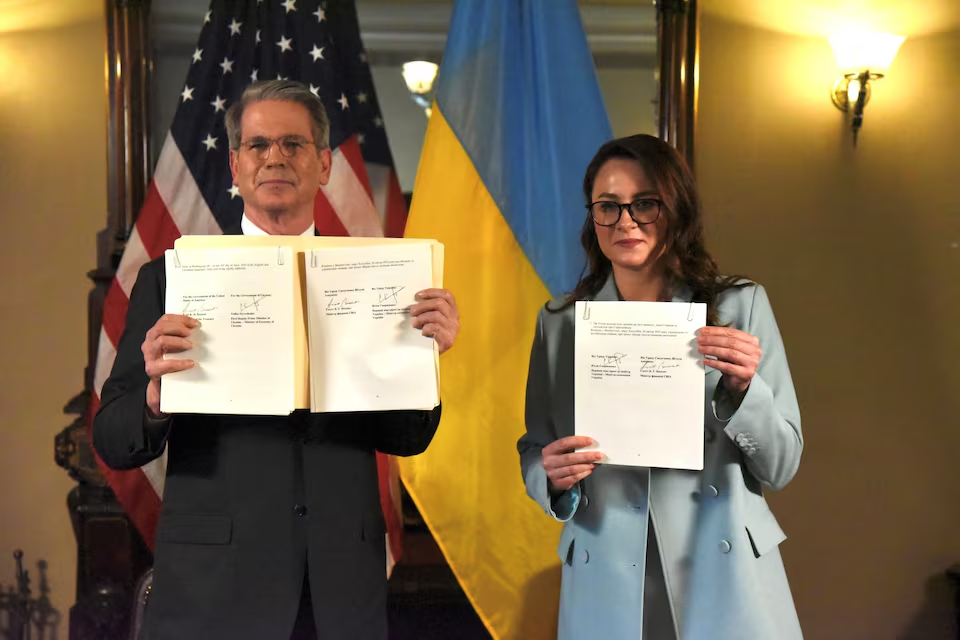On April 30, 2025, the United States and Ukraine signed a significant agreement in Washington, D.C., granting the U.S. preferential access to Ukraine’s mineral resources and establishing a joint investment fund for Ukraine’s reconstruction. U.S. Treasury Secretary Scott Bessent stated that the deal would enhance President Donald Trump’s position in negotiations with Russia, signaling strong U.S.-Ukraine unity.
The agreement is viewed as a milestone in U.S.-Ukraine relations, particularly after tensions earlier in Trump’s term. It aims to bolster Ukraine’s economy and support its efforts toward European Union integration. While the deal does not include explicit U.S. security guarantees, it emphasizes economic collaboration and mutual interests.
US Says Minerals Deal Will Strengthen Trump in Talks with Russia. U.S. Treasury Secretary Scott Bessent described the agreement as a key strategic win that would “strengthen President Trump’s hand” in upcoming negotiations with Russia. “This is more than a minerals deal,” Bessent said. “It’s a clear message that the U.S. and Ukraine stand shoulder to shoulder — economically, strategically, and politically.”
The minerals pact comes at a pivotal moment as Ukraine seeks deeper integration with Western institutions, particularly the European Union. Ukrainian officials have hailed the agreement as a milestone in their efforts to rebuild a sovereign economy resilient to Russian influence. Kyiv has made no secret of its desire to attract Western investment in its untapped natural resources sector, which could provide both economic independence and leverage in geopolitical affairs.
Ukrainian Foreign Minister Dmytro Kuleba emphasized that the agreement supports Ukraine’s broader goals without imposing new financial burdens. “There are no secret clauses or debt traps,” Kuleba said. “This deal is about mutual benefit and shared security.”
Former Russian President Dmitry Medvedev criticized the agreement, suggesting it compels Ukraine to repay U.S. military aid with valuable mineral assets. Ukrainian officials, however, maintain that the deal does not impose debt obligations and aligns with the nation’s constitutional commitments.
Notably, the deal does not contain explicit U.S. security guarantees, though officials suggest it could pave the way for deeper military-industrial cooperation. It is also expected to help Ukraine secure the foreign capital necessary to fund infrastructure, energy, and tech-sector recovery.
The agreement still needs to be ratified by Ukraine’s parliament. With President Volodymyr Zelenskyy’s coalition holding a majority, approval is expected in the coming weeks.
Analysts say the deal sends a strong signal to Moscow ahead of potential new rounds of diplomacy. “It ties Ukraine’s future to the U.S. economically, and that alone shifts the balance of power,” said Mark Galeotti, a Russia specialist at the Royal United Services Institute.
The move is also seen as part of Trump’s broader strategy to secure foreign policy wins in advance of the U.S. presidential election, positioning him as a stabilizing figure in Eastern Europe despite lingering concerns about his past rhetoric on NATO and Ukraine.
The agreement’s implementation is pending approval by the Ukrainian parliament.
Source: Reuters



